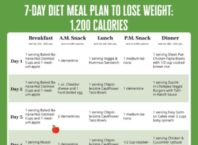Ten years after Carnie Wilson took her weight loss struggle public by undergoing laparoscopic gastric bypass live on the Internet the prevalent public notion persists that weight loss surgery is an easy fix for the overweight and morbidly obese. Common belief prevails that weight loss surgery (WLS) requires little if no effort on behalf of the patient. This could not be further from the truth. Just ask one of the 250,000 people who undergo some form of bariatric weight loss surgery procedure each year. They will tell you the truth: WLS requires tremendous work and sacrifice on behalf of the patient who must follow a strict diet, adapt a daily physical activity routine, and manage psychological issues associated with eating behaviors.
And it is for life: there are no weekends off, no dropouts from the program. Once a person has their digestive system rearranged they are committed to this “easy weight loss” for the rest of their life.
Generally speaking, WLS patients are instructed in the gold standard “Four Rules” of weight loss surgery. Simply stated they are: Protein First; Lots of Water; No Snacking; Daily Exercise. Quaint and forthright most pre-operative patients, myself included, agree thinking we have hit the Mother Lode of simple diet programs. I repeated those Four Rules to my bariatric nurse believing I understood completely what I had to do. But secretly I just wanted to get on with the weight loss and then back to normal. The unstated fact was there would be no “back to normal” because these Four Rules were the new normal if I wanted to lose weight and keep my obesity in remission for the rest of my life.
Protein First. Protein first means that every time we open our mouth to consume food the first thing we must eat is protein. These days bariatric centers are instructing patients to get anywhere between 60-105 grams or protein daily. Not just during the phase of weight loss, but this diet is indefinite. Protein sources include lean animal protein, poultry, dairy, eggs, seafood and shellfish, protein drinks and protein bars. In an ironic twist, protein does not always set well on the gastric pouch left by surgery. Many patients struggle to actually get the required protein and suffer feelings of nausea when following the directions to eat protein first.
Lots of Water. Like conventional diets the WLS diet requires copious amounts of water to flush waste and toxins from the body. Specific recommendations vary but minimally patients must drink 64 ounces of water a day. Coffee, tea and other non-caloric beverages do not count. Carbonated beverages must be eliminated from the diet to avoid damage to the gastric pouch. Alcohol should be eliminated or enjoyed in very small controlled portions. Complicating matters are the “Liquid Restrictions” which apply to all WLS procedures. That means no drinking liquids for 30 minutes before or after meals or with meals in order for the food to compact tightly in the pouch thus prolonging feelings of fullness and satiation. Eating a meal “dry” is never easy and most patients struggle with the Liquid Restrictions.
No Snacking. Weight loss surgery patients are advised no snacking. While some programs approve mid-day “mini-meals” bariatric programs universally tell patients to avoid random snacking on empty calorie highly processed simple carbohydrate food. This type of snacking we so enjoy is the very food that contributed to obesity in the first place. It is the same snacking that is ubiquitous in schools, workplaces, and social gatherings. People who elect this “easy weight loss surgery” can never participate in social snacking again without fear of immediate illness called dumping syndrome, or the long term complications of weight gain. Patients who have regained weight after losing it with weight loss surgery will tell you the weight gain is the direct result of snacking or grazing and they regret a return to this habit.
Daily Exercise Most WLS patients are directed to exercise 30 minutes a day on most days of the week in order to sustain weight loss and maintain a healthy weight once weight loss is achieved. Yet studies indicate that nearly 80 percent of patients fail to meet the prescribed daily exercise. Patients who do meet the exercise requirements and continue exercise as part of their weight maintenance program report greater success in keeping a healthy weight. Patients who do not include exercise in the treatment of their morbid obesity often fail to achieve full weight loss or maintain that weight loss.
There is no such thing as easy weight loss or easy weight control in spite of what advertisers tell us. More so than any other treatment, surgical intervention for the treatment and control of morbid obesity is drastic and irreversible. The surgery and its rules do not take weekends and holidays off; it is not a fair weather diet. It is for life. Are you ready for such an “easy” fix for your overweight woes?
5 Day Pouch Test






